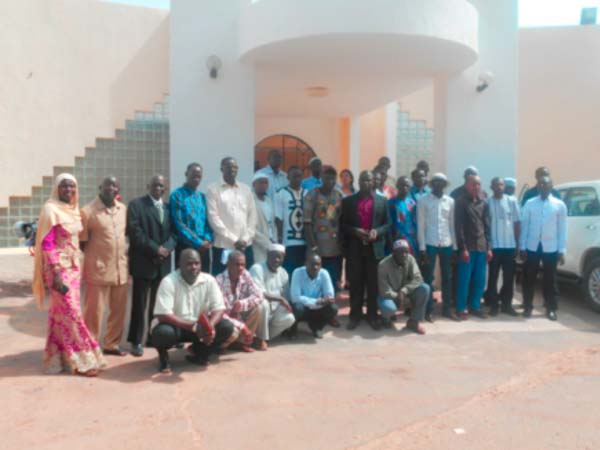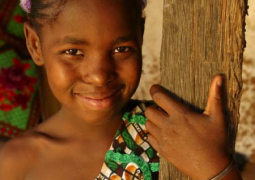
A
three-day training course for adapting small-scale Irrigation to climate change
in West and Central Africa, for stakeholders of GEF and IFAD projects, is
currently under way at the Ocean Bay Hotel.
The
forum was organized under the department of Forestry, funded by IFAD and
implemented by FAO.
Speaking
at the opening session, a representative from the FAO country office, Sira
Njie, said the project on adapting small-scale irrigation to climate change in
West and Central Africa, has a total budget of US$1.5 million.
The
regional phase covered eight countries namely, Mali, Niger, Chad, Cote d ivory,
Liberia, Sierra Leone and The Gambia.
The
national phase is being implemented in four West African countries, and is
expected to end by December 31st 2017.
In
The Gambia, the project targets IFAD
intervention sites within the lowland
agro-ecology in two regions, NBR
and CRR-South, focusing on water retention and tidal irrigation schemes, with a view to assess
their vulnerability and resilience to climate change and determine adaptation
needs.
According
to Sira Njie, the expected outcomes of the project are availability of updated
information on vulnerability of small-scale irrigation schemes to climate
change for the main agro-ecology systems in the West and Central Africa region.
She
said the projects are in alignment with the country development goals and
strategic objectives, such as the National Agricultural Investment Plan
(GNAIP)-2015 and the National Adaptation Programme for Action (NAPA) 2007.
She
also stated that climate variability endangers livelihoods, well-being, and
socio-economic factors needed for coping with threats to the environment and
human systems that sustain situations, concerns and interest of farmers and
pastoralists relating to climatic resilience in agriculture.
“It
is in this regard that FAO in collaboration with its partners developed an
assessment tool, SHARP, for measuring climate resilience to fill the void
identified in farming systems resilience assessment, in an integrated,
participatory and yet scientific manner tailored to the needs of smallholder
farmers and pastoralists.”
She
further stated that the outcome of the training forum shall benefit both the
IFAD-funded project, and the two GEF-funded projects namely, adapting
agriculture to climate change in The Gambia and community- based sustainable
dryland forest management.
All
these projects are in- line with the National Adaptation Programme for Action
(NAPA) and aims to support immediate adaptation priorities in the agriculture
and natural resources sector.
The
FAO country representative thanked the Gambia government through the ministries
of Agriculture, Forestry and Environment and Fisheries and Water Resources, for
the fruitful relationship which FAO enjoys with its government partners.
“We
take this opportunity to reaffirm our commitment to deepening our collaboration
and cooperation with the government of The Gambia for the benefit of the people
of The Gambia.”
Aji
Oulaye Njie, climate change adaptation specialist, said the agriculture sector
feeds the nation. However, over the past few years, they have seen the sector
struggling to cope with the negative and drastic impacts of climate change.
The
hydrologic cycle now includes more frequent and intense droughts and floods in
many agriculture regions, she said.
Read Other Articles In Article (Archive)
THE ISLAMIC CENTER FOR HARMONIZATION OF SCHOOLS OF THOUGHT (ICFH)
Feb 6, 2009, 5:17 AM


